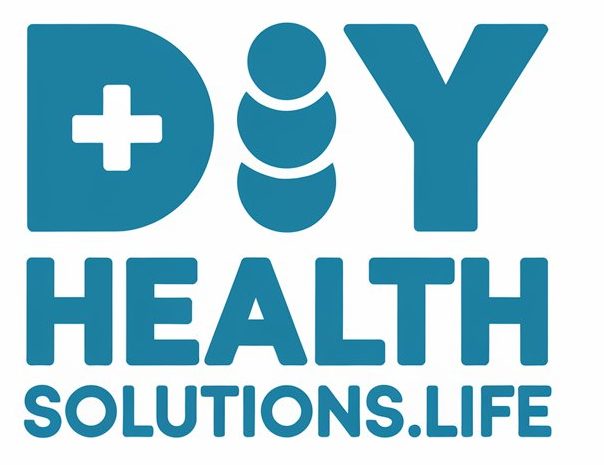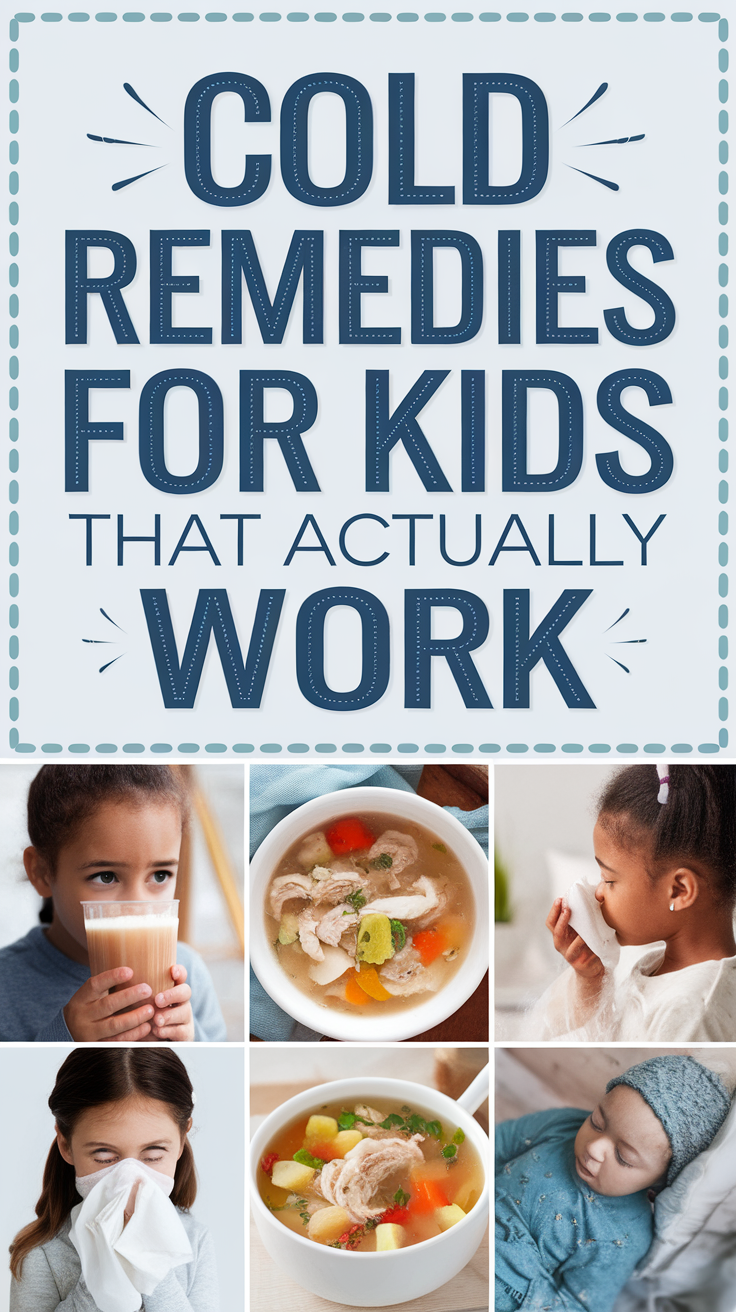Cold Remedies for Kids That Actually Work
When your child has a cold, trying effective remedies can help ease their symptoms. Start with honey to soothe a sore throat and keep them hydrated with warm fluids like herbal tea or broth. Using steam inhalation or a humidifier can relieve nasal congestion, and saline nasal drops can clear their passages. Over-the-counter options like acetaminophen or ibuprofen can reduce fever and aches. Don’t forget the power of good nutrition, as soups and nutrient-rich foods boost their recovery. If symptoms persist or worsen, there’s more important information you might want to consider.
Understanding Cold Symptoms
When your child catches a cold, you’ll likely notice a variety of symptoms that can range from mild to bothersome. Initially, you might see a runny or stuffy nose, which often leads to sneezing. This congestion can make it tough for your little one to breathe comfortably, especially at night. You may also notice a sore throat, which can make eating and drinking uncomfortable for them.
As the cold progresses, a cough often develops. This can be dry or produce mucus, and it may worsen when your child lies down. A low-grade fever might accompany these symptoms, signaling that their body is fighting off the virus. You’ll want to keep an eye on their temperature, as a higher fever could indicate a more severe illness.
Fatigue is another common symptom. Your child may feel more tired than usual and may want to rest more. While it can be distressing to see your child unwell, understanding these symptoms will help you provide the care they need. Monitoring these signs is essential, as it will guide you in deciding when to seek further medical advice.
Natural Remedies for Relief
While conventional medications can be helpful, many parents prefer natural remedies to alleviate their child’s cold symptoms. One effective option is honey, which can soothe a sore throat and help suppress coughing. Just make sure your child is over one year old before giving it to them.
Another great remedy is warm fluids, like herbal teas or broths. These can keep your child hydrated and help relieve congestion. Adding a bit of lemon or ginger can boost their soothing effects.
Steam inhalation can also provide relief from nasal congestion. You can create a steam room by running a hot shower and having your child breathe in the warm, moist air. Alternatively, a humidifier in their room can keep the air moist and ease breathing.
Don’t forget about rest! Encouraging your child to take it easy allows their body to recover more effectively.
Lastly, consider using saline nasal drops to clear nasal passages. This simple, natural approach can make a big difference in your child’s comfort. By combining these remedies, you can help your little one feel better naturally as they recover from their cold.
Over-the-Counter Options
If you’re considering over-the-counter options to help your child cope with cold symptoms, there are several effective products available. These remedies can offer relief from discomfort and help your child feel better faster. Always check with your pediatrician before starting any new medication, but here are some common options you might find useful:
- Children’s Acetaminophen or Ibuprofen: These can reduce fever and ease aches and pains.
- Cough Syrups: Look for age-appropriate formulations designed specifically for kids to help suppress coughs.
- Decongestant Nasal Sprays: These can provide quick relief from nasal congestion, making it easier for your child to breathe.
- Antihistamines: These can help combat runny noses and sneezing, especially if allergies are involved.
Hydration and Nutrition
Proper hydration and nutrition play a crucial role in helping your child recover from a cold. When your little one is under the weather, keeping them well-hydrated can make a big difference. Encourage them to drink plenty of fluids like water, herbal teas, or diluted fruit juices. These options not only keep them hydrated but can also soothe their throat and thin mucus, making it easier to breathe.
Nutrition is equally important during this time. Focus on providing nutrient-rich foods that support their immune system. Offer them soups loaded with vegetables, broths, and lean proteins, which can help them regain strength. Foods rich in vitamins C and D, such as citrus fruits and fortified dairy products, are particularly beneficial.
Don’t forget about the importance of rest. Encourage your child to take it easy and let their body heal. While they might not have a big appetite, small, frequent meals can help sustain their energy levels. Remember, proper hydration and nutrition not only aid in recovery but also keep your child comfortable during their cold.
Home Care Strategies
Finding effective home care strategies can significantly ease your child’s discomfort during a cold. You can create a soothing environment and provide relief with some simple techniques. Here are a few strategies to consider:
- Steam Inhalation: Let your child breathe in steam from a hot shower or a bowl of hot water. This helps to clear nasal congestion.
- Saline Nasal Drops: Use saline drops to keep your child’s nasal passages moist. It can help relieve stuffiness without side effects.
- Warm Compress: Applying a warm, damp cloth to your child’s forehead can soothe sinus pressure and headaches.
- Honey for Coughs: If your child is over one year old, give them a spoonful of honey before bed. It can help reduce nighttime coughing.
Make sure your child gets plenty of rest, too. Sleep allows their body to recover and fight off the virus. Monitor their symptoms, and adjust the care strategies as needed. These home care tips can help your child feel more comfortable while their body battles the cold, allowing them to bounce back faster.
When to See a Doctor
Knowing when to see a doctor can be crucial in managing your child’s cold effectively. While most colds are mild and resolve on their own, certain symptoms may signal a more serious issue. If your child has a high fever (over 101°F) lasting more than three days, it’s time to consult a healthcare professional. Additionally, if they experience difficulty breathing, wheezing, or persistent coughing that disrupts sleep, don’t hesitate to seek medical advice.
Watch for signs of dehydration, like reduced urination, dry mouth, or lethargy. These symptoms require immediate attention. If your child shows unusual irritability, confusion, or is unusually drowsy, it’s best to err on the side of caution and contact your doctor.
You should also be alert for a cold that worsens after several days, especially if they develop a rash, severe headache, or ear pain. Remember, your intuition as a parent is vital. If something feels off about your child’s condition, trust your instincts. Early intervention can help prevent complications and ensure your child gets the care they need to recover swiftly.
Frequently Asked Questions
Can Cold Remedies Interact With Other Medications My Child Is Taking?
Yes, cold remedies can interact with other medications your child’s taking. Always check with your pediatrician or pharmacist before administering anything new to ensure safety and avoid potential adverse reactions or diminished effectiveness of treatments.
Are There Age Restrictions for Using Over-The-Counter Cold Medications?
Yes, there are age restrictions for using over-the-counter cold medications. Most products specify age limits, and some aren’t recommended for children under a certain age. Always check labels and consult your pediatrician for guidance.
What Should I Avoid Giving My Child During a Cold?
During a cold, you should avoid giving your child aspirin, as it can lead to Reye’s syndrome. Also, steer clear of honey for children under one year, and limit dairy products that may increase mucus.
How Long Can a Cold Typically Last in Children?
A cold in children typically lasts about seven to ten days. You might notice symptoms peaking around days two to three, then gradually improving. Keep an eye on their comfort and hydration during this time.
Can Allergies Cause Symptoms Similar to a Cold in Kids?
Yes, allergies can definitely cause symptoms that mimic a cold in kids. You might notice sneezing, a runny nose, or itchy eyes, which can be confusing. It’s essential to differentiate between the two for proper treatment.

